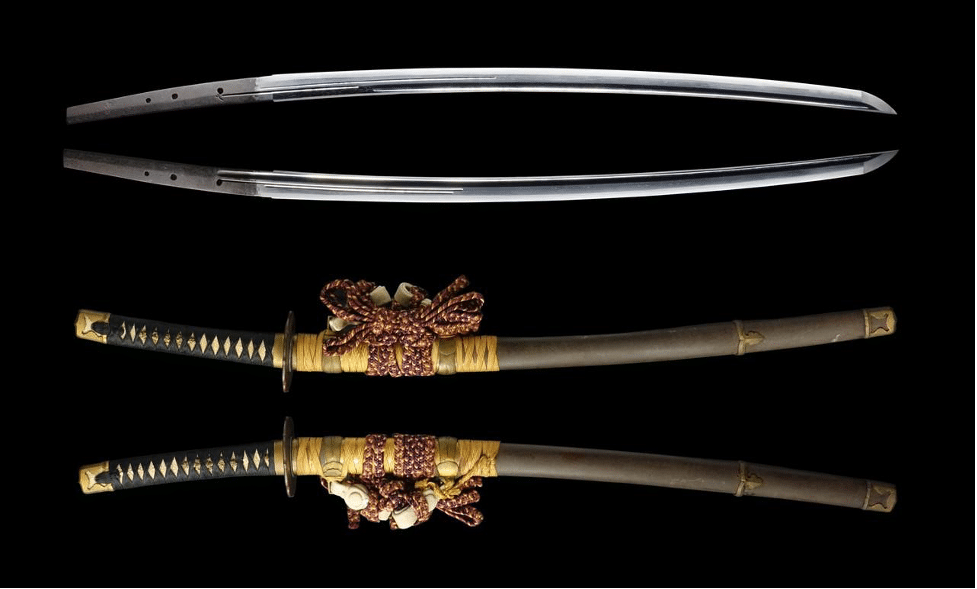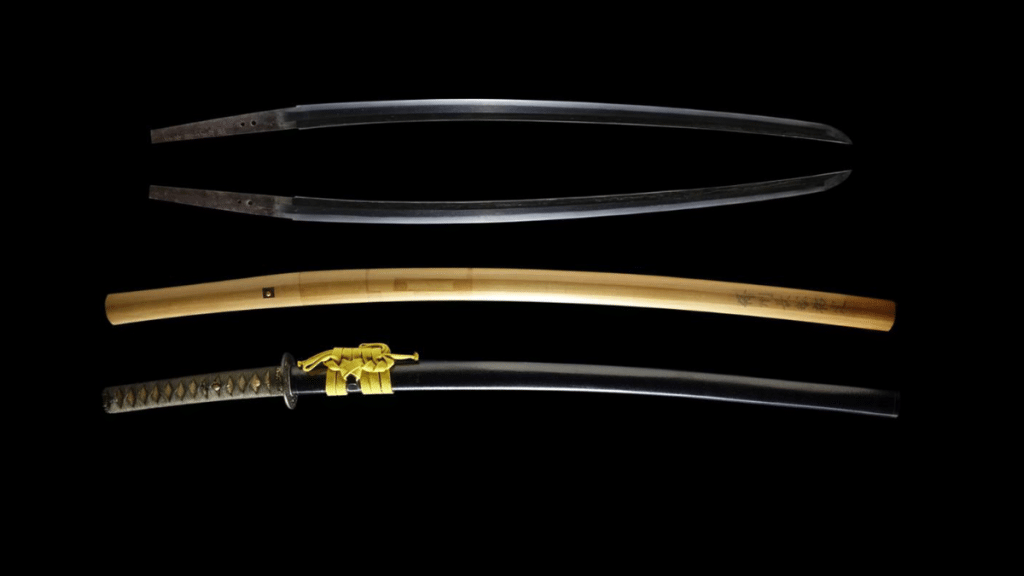Swords are deeply ingrained in Japanese culture. But as with any powerful weapon, it can create or destroy. In a country that has experienced the joy and the pain of swordsmanship, sword ownership remains a tricky balance between safety and tradition.
So, is it legal to own it in modern-day Japan?
While swords are deeply rooted in Japanese culture, strict laws govern their ownership to preserve safety and heritage. The good news? Owning a sword in Japan with the proper knowledge and preparation isn’t illegal.
This article will examine the legalities, unveil the practical steps required to own a sword and explore the enduring tradition they represent.
Overview of the Firearms and Swords Control Law
The Firearms and Swords Control Law is Japan’s primary regulation governing sword ownership. Enacted to ensure public safety, this law strictly controls weapons, including swords, while allowing cultural and historical preservation exceptions.
The law requires individuals to register swords considered dangerous or functional. This regulation minimizes the risk of misuse while protecting Japan’s unique sword-making tradition. Unlike decorative or replica swords, functional blades are subject to stricter scrutiny.
Definition of a Sword Under Japanese Law
Legally, a sword is any blade over 15 cm, crafted to pierce, cut, or wound. This includes katana, tanto, and other traditional weapons.
Replicas or decorative swords with blunt edges, often sold as souvenirs, are not classified as weapons. They typically fall outside the scope of strict regulations. However, owning a genuine, functional sword means adhering to the law’s requirements, including registration and storage rules. These laws balance public safety and preserve Japan’s storied history of sword craftsmanship.
Legal Requirements for Owning a Sword in Japan
Owning a sword in Japan is legal. However, the owner must follow strict Firearms and Swords Control Law. This regulation ensures the safe and responsible handling of swords while preserving Japan’s cultural heritage.

1. Registration Process
Every sword classified as a “true blade” must be registered with the Japanese government. A proper blade typically measures over 15 cm and is sharp enough to cut. Decorative swords or replicas without sharp edges may not require registration.
To register your sword, submit it to a local Board of Education or cultural property authority. These officials will inspect the sword to confirm its authenticity and ensure it complies with regulations. If approved, you will receive a registration certificate known as a torokusho. This document proves the sword is legal and registered. You must keep it with the sword at all times.
2. Exemptions and Special Permissions
Antique swords and heirloom katana often hold cultural significance and may qualify for exemptions. These items are considered cultural assets and can be registered under relaxed rules. Owners of such swords must still apply for a torokusho but may face fewer restrictions.
Additionally, martial artists practicing traditional sword arts like kendo or iaido may own registered swords for training. However, these practitioners must still follow all safety and registration requirements.
Sword enthusiasts can legally own and enjoy these iconic pieces of Japanese heritage by following the outlined process and understanding these exemptions.
Consequences of Illegal Sword Ownership
There are severe repercussions for owning an unregistered or prohibited sword in Japan, including:
1. Criminal Penalties
Possessing an unregistered sword is illegal in Japan. The offense is punishable by heavy fines or up to three years in custody. These penalties emphasize the government’s commitment to public safety and legal compliance.
Authorities have previously prosecuted individuals for failing to register heirloom swords inherited without proper documentation. Even swords displayed in homes or businesses must have the correct permits to avoid legal consequences.
2. Sword Confiscation
Any sword without the proper registration is subject to immediate confiscation. Law enforcers destroy seized swords unless they qualify as cultural artifacts. In rare cases, historical or significant swords may be preserved but removed permanently from the owner’s possession.
Owners lose the right to reclaim confiscated swords, even if the situation results from misunderstanding the law. This underscores the importance of verifying compliance with registration requirements.
Failing to follow Japanese Swords For Sale ownership laws can lead to heavy penalties and the loss of valuable or historic weapons. Legal compliance is essential to avoid these consequences while honoring the nation’s regulations.
Practical Considerations for Potential Sword Owners
Here are practical tips, to ensure a smooth and lawful sword ownership experience in Japan.
1. Where to Buy Legal Swords in Japan
Purchasing a sword through a registered antique shop or a licensed dealer is the safest way to buy one in Japan. These vendors meet legal requirements and are authorized to sell swords, ensuring the process is straightforward and legitimate.
For collectors, visiting a registered swordsmith is an excellent option. Japanese swordsmiths follow traditional methods to craft authentic Wakizashi For Sale katana and other blades. However, expect to pay a premium, as handmade swords are both works of art and cultural treasures.
Online purchases can be risky. Many websites advertise swords, but only a few comply with Japan’s strict regulations. Always verify the seller’s credentials and ensure the sword can be registered upon arrival.
2. Care and Maintenance Requirements
Proper care is essential for sword owners to preserve their value and comply with the law. Registered swords should have a safe storage location, such as a locked display case or storage unit.
Continuous maintenance, like polishing and oiling, prevents damage and rust. Professional services are available for owners unfamiliar with traditional sword care. Additionally, your sword may require periodic inspections to protect its registration status.
By purchasing from reputable sources and preserving your sword responsibly, you can enjoy the beauty of sword ownership while conforming to Japanese law.
Conclusion
Sword ownership in Japan is a complex issue. It varies widely depending on where you live. Understanding your local weapon laws and cultural beliefs surrounding these legendary weapons is critical. Even with all these strict legal restrictions, the allure of owning a sword in Japan remains unshaken for many. With the appropriate knowledge, you can legally own a sword. But that privilege comes with a significant responsibility to honor its cultural significance, the laws, and the safety of others around you.
